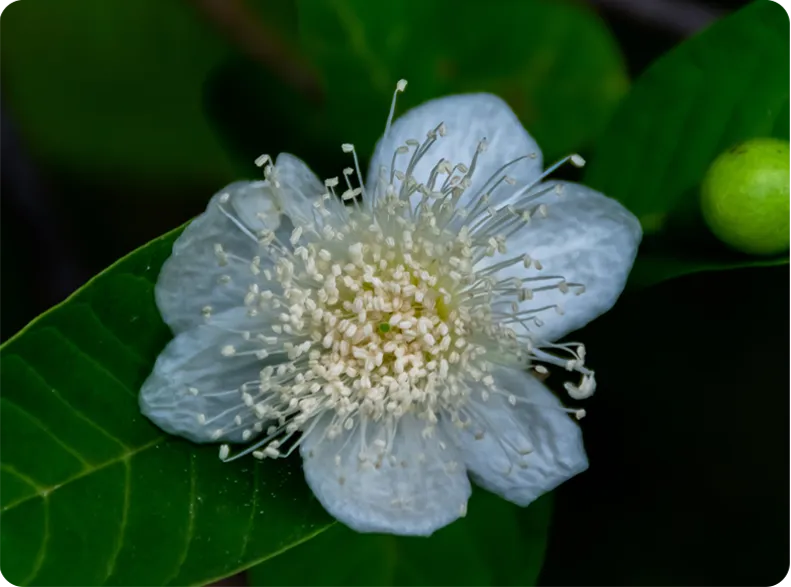What causes seasonal allergies?
Allergy season is different for everyone. That’s because different kinds of outdoor allergens (or irritants) get distributed into the air year-round. So while springtime might be a time of beauty and renewal for some, for others it’s the annual onset of allergy symptoms.
Seasonal allergies such as spring allergies are most often caused by pollen produced by trees, grasses, and weeds.1 When inhaled by an allergy sufferer through the nose or mouth, pollen can cause the immune system to overreact and trigger allergy symptoms.
When is allergy season?
Allergy symptoms can be triggered at any time of year, though outdoor allergens are typically active in the spring and fall seasons. Here are some key triggers for each season, which can vary by region:
![]()
Spring: Tree pollen is the main culprit behind spring allergies. The most common tree species that contribute to allergy symptoms include oak, birch, cedar, elm, and maple.1
![]()
Summer: Grass pollen is a big cause of summer allergies. Species including Kentucky, Timothy, Johnson, Rye, and Bermuda grasses are some of the most notorious.1
![]()
Fall: Pollen from weeds is one of the main concerns for fall allergies. Ragweed season can last 6–10 weeks, depending on where you live, typically peaking during September.2 Weed pollen, especially ragweed, causes allergy symptoms for many people. About 15% of the U.S. population is allergic to ragweed pollen.1
![]()
Winter: During winter, the pollen count is typically lower so you might notice a reduction in allergy symptoms when you're outside. However, watch out for indoor allergens such as dust mites, mold, and pet dander.3

What are the symptoms of seasonal allergies?
Your seasonal allergy symptoms may include:1
![]()
Nasal allergy congestion
![]()
Sneezing
![]()
Runny nose with thin, clear mucus
![]()
Itchy nose
![]()
Itchy throat and itchy/watery eyes*
*Nasacort® is not indicated for relieving these symptoms and should only be used as directed for nasal-allergy-symptom relief.
Allergies or cold?
Because colds and allergies share many of the same symptoms, it can be hard to distinguish between the two. When you have a cold, common symptoms are sneezing, runny nose, cough, sore throat, headache, nasal congestion, and fever.4 The different symptoms for a cold versus allergies are primarily sore throat, headache, and fever.
If you have these symptoms and are unsure whether you have a cold or allergies, contact your doctor for a proper diagnosis.

Tips for managing seasonal allergies1
![]()
Know your pollen count: Checking pollen levels in your area can help you limit your outdoor activity and know when to leave the house so you can prepare for and plan around days when the pollen count is high. Use our pollen tracker to check your local forecast.
![]()
Close your windows: Keep your windows and doors shut to keep out pollen spores that can circulate and settle inside your home.
![]()
Use an air filter: Installing a good air filter in your home, such as a high-efficiency particulate air (HEPA) filter, can trap the pollen and other allergens inside your house such as dander — especially helpful if you also suffer from pet allergies.
![]()
Take your shoes off: Remove your shoes and leave them outside before entering the house to help keep pollen out.
![]()
Shower after spending time outside: Once you get inside, remove your clothes and toss them in the wash, then shower to wash pollen off your skin and hair so it doesn’t transfer onto your chairs, bed, and pillows.
![]()
Manage symptoms with medication: If you can’t avoid allergens, then relieve your symptoms with allergy medication. There are many different kinds of over-the-counter allergy medicine available today. Over-the-counter oral antihistamines can help. But if you’re struggling with nasal allergy congestion, a nasal corticosteroid like Nasacort® Allergy 24HR is the way to go.
Breathing is believing with Nasacort®
Say hello to fresh air and goodbye to nasal allergy congestion with Nasacort® Allergy 24HR. The mist helps relieve seasonal nasal allergy symptoms and contains the #1 doctor-recommended type of medicine for nasal allergy congestion relief.
Learn more about Nasacort® Allergy 24HR
References
1. Asthma and Allergy Foundation of America, Clifford Bassett, MD. Pollen Allergy. https://www.aafa.org/pollen-allergy/
2. Asthma and Allergy Foundation of America, Clifford Bassett, MD. Ragweed Pollen Allergy. https://www.aafa.org/ragweed-pollen/
3. Asthma and Allergy Foundation of America, Editors. Control Indoor Allergens to Improve Indoor Air Quality. https://www.aafa.org/control-indoor-allergens/
4. Cleveland Clinic, Editors. Common Cold. https://my.clevelandclinic.org/health/diseases/12342-common-cold
Related articles
How nasal sprays and oral antihistamine tablets relieve allergies
Learn more about nasal sprays and oral antihistamine tablets and how they can relieve allergy symptoms.
Six ways to help with nasal allergy congestion
Here are six ways to find relief from nasal allergy congestion.
Indoor allergies — symptoms, causes, and tips for relief
Learn where indoor allergies come from and how to reduce allergy triggers.






